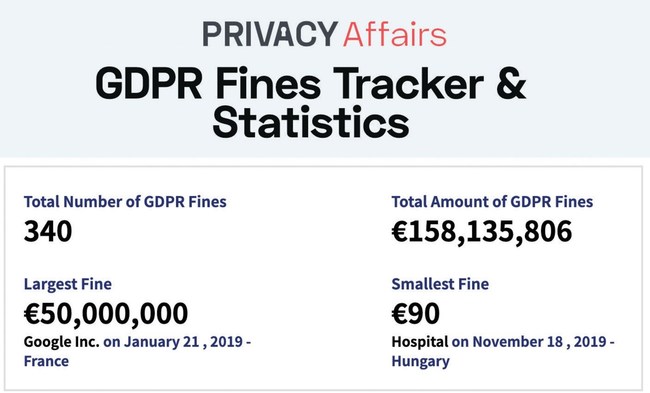CHICAGO, July 31, 2020 /PRNewswire/ — According to the new market research report “Maritime Satellite Communication Market by Component (Solutions and Services), Solution (VSAT and MSS), Service (Tracking and Monitoring, Voice, Video, Data), End User (Merchant Shipping, Offshore, Government), and Region – Global Forecast to 2025″, published by MarketsandMarkets™, the global Maritime Satellite Communication Market size is expected to grow from USD 2.3 billion in 2020 to USD 3.2 billion by 2025, at a Compound Annual Growth Rate (CAGR) of 7.1% during the forecast period. Escalating the need for enriched data communication to improve operation efficiency, onboard security & surveillance, and employee/passenger welfare in maritime is driving the market.
Furthermore, the major factor driving the Maritime Satellite Communication Market is the need to attain improved connectivity between the land and sea operations and realizing benefits in faster repair times, preventative maintenance, fuel-saving, and real-time navigation.
Browse in-depth TOC on “Maritime Satellite Communication Market“
221 – Tables
42 – Figures
216 – Pages
Download PDF Brochure:
https://www.marketsandmarkets.com/pdfdownloadNew.asp?id=113822978
Ka-band segment to account for the largest market size during the forecast period
This section studies the maritime satellite communication VSAT portfolio. Ka-band operates under frequency 26.5-40 GHz. It is an extremely high frequency, commonly used in HD satellite TV. It is used by the maritime industry to support marine VSAT services. Ka-band incurs significant implementation cost but relatively low maintenance. It is susceptible to rain fade. Inmarsat was the first company to provide Ka-band VSAT services. As more Ka-band bandwidth becomes available, other players also started using Ka-band to deliver their communication services.
The video service segment to account for the largest market size during the forecast period
The video service segment of the maritime satellite communication service includes streaming of high definition photos & videos and online TV channel broadcast services. Video services enable the crew to get in touch with family through videoconferencing, get information & update on news, sports, and favorite TV programs, and many other services. Live video service can help onboard technicians to get live assistance from experts to resolve problems. High-quality live video transfer needs reliability and sufficient bandwidth.
Speak to Analyst:
https://www.marketsandmarkets.com/speaktoanalystNew.asp?id=113822978
APAC to account for the highest market share during the forecast period
The Maritime Satellite Communication Market in APAC is the largest in terms of market size. APAC is the fastest-growing region in the Maritime Satellite Communication Market. Many countries in the APAC region are likely to adopt maritime satellite communication solutions owing to high demands, specifically in the oil and gas, merchant shipping, mining, and passenger shipping verticals. The APAC region is implementing maritime satellite communication solutions significantly. The maritime satellite technology has been adopted in this region to incorporate advanced communication networks to communicate with employees, such as crew working at remote offshore locations.
The major Maritime Satellite Communication Market vendors include Inmarsat (UK), Iridium Communications (US), Thuraya (UAE), Hughes Network Systems (US), KVH Industries (US), Viasat (US), Speedcast (Australia), ST Engineering (Singapore), NSSLGlobal (England), Marlink (France), ORBOCOMM (US), Navarino (Greece), Network Innovations (Canada), GTMaritime (England), AST Group (UK), Isotropic Networks (Wisconsin), Norsat International (Ontario), Satcom Global (Canada), Intelsat (US), and Orbit Communication Systems (Israel).
Browse Adjacent Markets: Satellite Communication Market Research Reports & Consulting
Related Reports:
Nanosatellite and Microsatellite Market by Component (Hardware, Software & Data Processing, Launch Services), Type (Nanosatellite and Microsatellite), Application, Vertical (Government, Defense, Civil), and Region – Global Forecast to 2025
M2M Satellite Communication Market by Technology (Satellite Telemetry, VSAT, AIS), Communication Network Device (Satellite IP Terminals, Satellite Modems, Gateways), Service (Managed Service, Data), Vertical, Region – Global Forecast to 2020
https://www.marketsandmarkets.com/Market-Reports/m2m-satellite-communication-market-33741729.html
About MarketsandMarkets™
MarketsandMarkets™ provides quantified B2B research on 30,000 high growth niche opportunities/threats which will impact 70% to 80% of worldwide companies’ revenues. Currently servicing 7500 customers worldwide including 80% of global Fortune 1000 companies as clients. Almost 75,000 top officers across eight industries worldwide approach MarketsandMarkets™ for their painpoints around revenues decisions.
Our 850 fulltime analyst and SMEs at MarketsandMarkets™ are tracking global high growth markets following the “Growth Engagement Model – GEM”. The GEM aims at proactive collaboration with the clients to identify new opportunities, identify most important customers, write “Attack, avoid and defend” strategies, identify sources of incremental revenues for both the company and its competitors. MarketsandMarkets™ now coming up with 1,500 MicroQuadrants (Positioning top players across leaders, emerging companies, innovators, strategic players) annually in high growth emerging segments. MarketsandMarkets™ is determined to benefit more than 10,000 companies this year for their revenue planning and help them take their innovations/disruptions early to the market by providing them research ahead of the curve.
MarketsandMarkets’s flagship competitive intelligence and market research platform, “Knowledge Store” connects over 200,000 markets and entire value chains for deeper understanding of the unmet insights along with market sizing and forecasts of niche markets.







